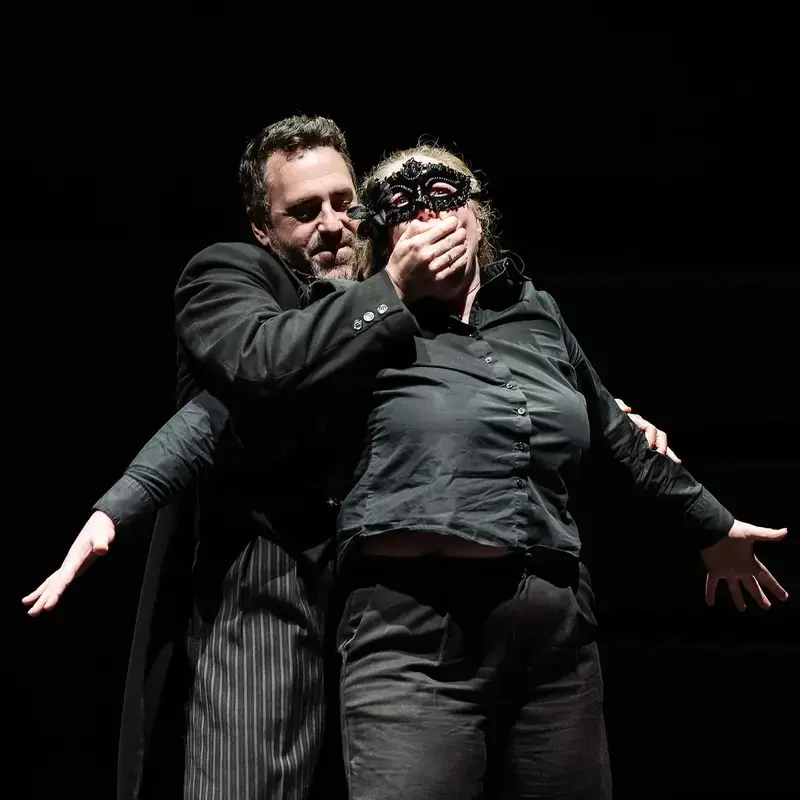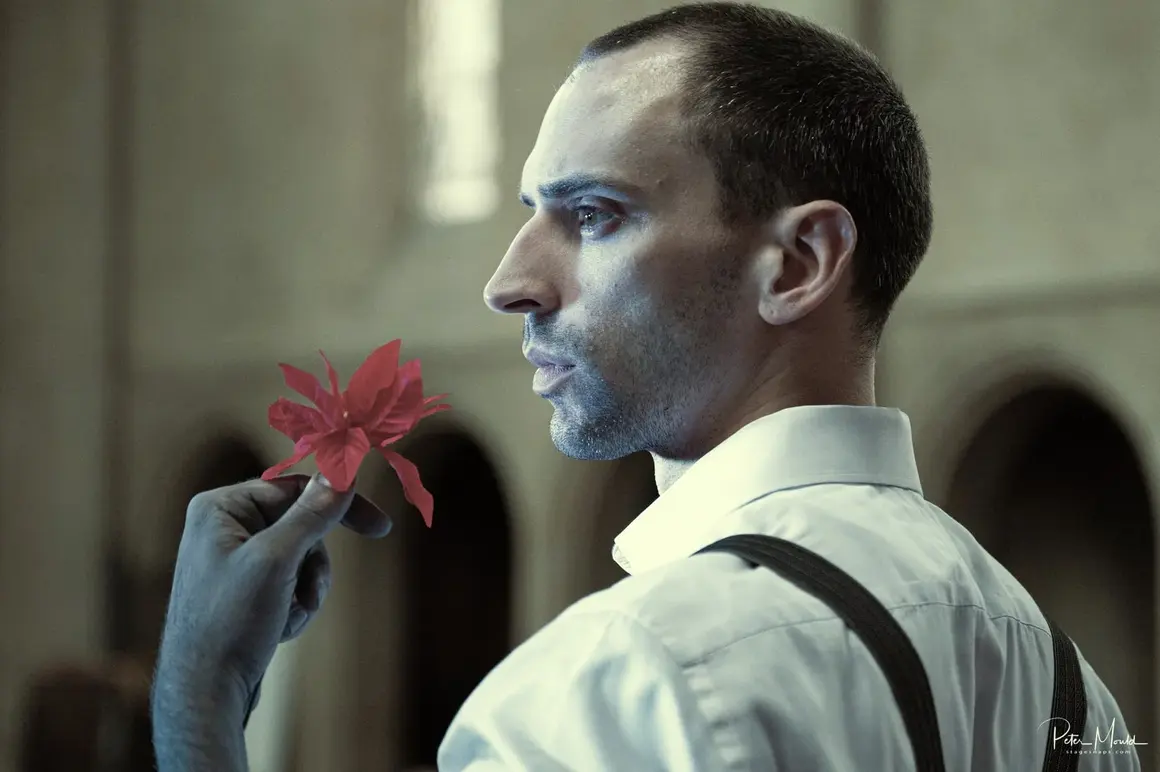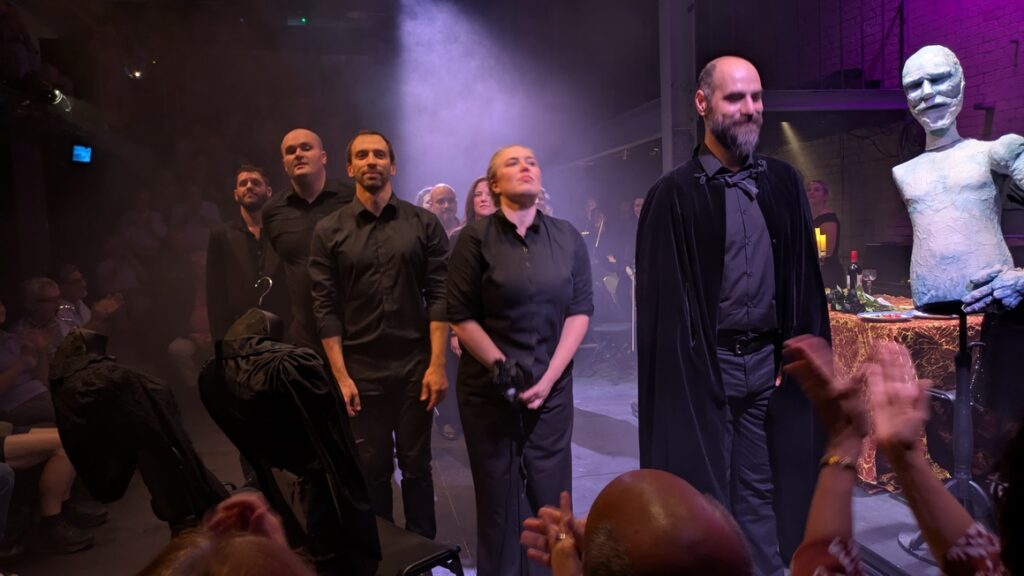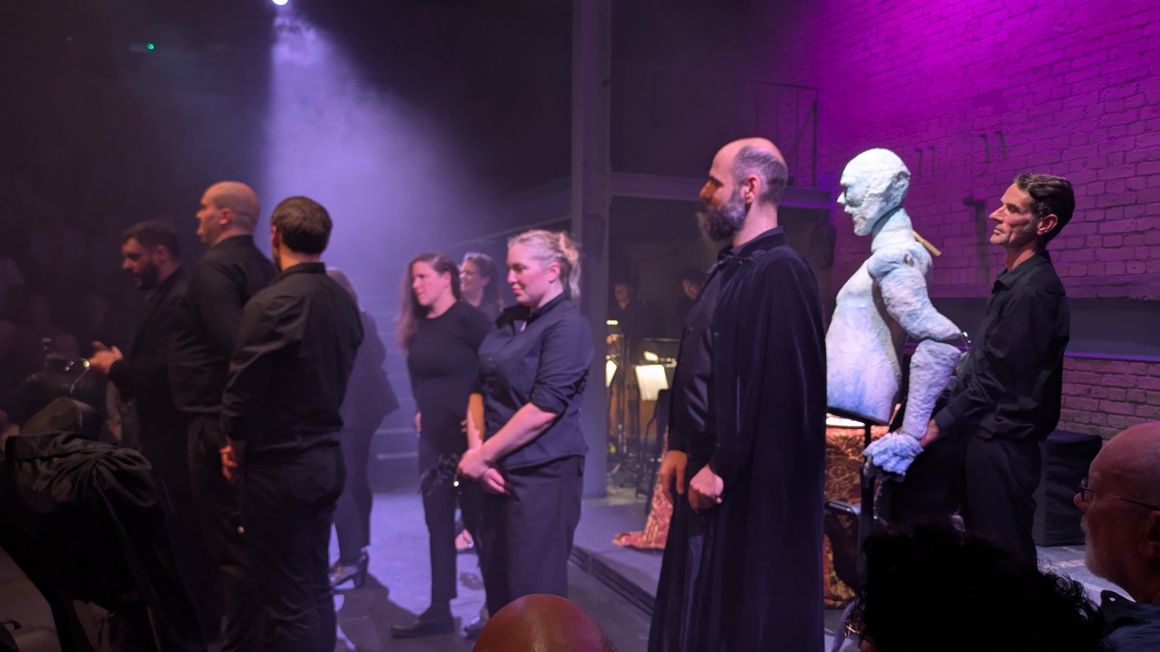Review by Simon Jenner, August 26 2025
★★★★
Just to prove they’re one opera ahead of Glyndebourne, Mozart’s Don Giovanni arrives at Grimeborn as Glyndebourne’s latest Figaro arrives at the Proms on 27th. Helmed by Marcio da Silva as both the Don and stage director, it’s conducted by Beth Fitzpatrick with members of the Hastings Philharmonic. It runs till August 30th. On alternate nights conducting falls to either Da Silva with the Don taken by Oshri Segev on 28th and 30th; or Andreas Levisianos.


Photo Credit: Ensemble OrQuesta
An ensemble that punches far above its weight, they’re currently making the first recording of the Elizabeth Jacquet de le Guerre opera Céphale et Procris they brought to Grimeborn in 2023. This Don Giovanni emphasises devilry through shadow-play and ominous doppelgangers all round. There’s Gill Jenks’ sleek costumes velveted with the dark (with a 20th century hat for the Don); masks (like last week’s Sense & Sensibility, though with keen dramatic bite). Strikingly there’s Orlando Bishop’s puppets including the Stone Guest, where the stone puppet is manipulated by Bishop himself as his vocal shade is sung with adamantine gravitas by Vedat Dalgiran as the revenant Commendatore. With dry ice at his appearance, this is a production revelling in how lucid low lighting persuades you of mistaken identities and a kind of inverted Tenebrae. Lit in violets and reds (one assumes da Silva’s stagecraft, adding a table and set pieces to Bishop’s puppets), there’s even a row of candle footlights for the partying scene.
Da Silva commands as the Don, his presence burnished, menacing if not entirely psychopathic. But the sexual violence is there from the overture as he assaults Rosemary Carlton-Willis’s Donna Anna, then kills Dalgiran’s Commendatore. Soprano Carlton-Willis’s Donna Anna is a powerful lyric soprano, affecting and blended with Don Twitchen’s Son Ottavo, who has just one opera to round out his dramatically-outclassed nobility. Musically though he’s a sympathetic tenor, able in his role to ascend notes above the male company.
Each different from both Helen May’s coloratura and fleet Donna Elvira, and German soprano Anna-Luise Wagner’s delightfully flirty Zerlina with a light sometimes stratospheric tessitura. She’s a modern Zerlina, not above taking the seduction role herself, the low-lying bench much-used in this production. As scold to Jay Rockwell’s luckless but lean Masetto (keenly sung and looking no pushover, a bass with bass-baritonal notes), it’s clear this Zerlina outclasses him in guile. But for the last assault (dispelling any feeling this could be a mutual tryst), Zerlina here rather regrets not consummating her fling.
May is superb at lighting every flicker of her tragic obsession: from steely to outraged to melting and finally, resignation. The final chorus is omitted, and we don’t have to reflect on self-imposed fates. Elvira’s a source of comedy too, and da Silva and Flavio Lauria extract the maximum fun from her continual humiliation – worst of all when Leporello pretends to the be the Don to draw her away so the don can seduce her maid. May manages this with a look of dignity and hurt (she’s the most facially expressive of all, alongside Wagner’s delighted arousal) that softens the cruelty of Da Ponte’s and Mozart’s invention. There’s a pre-announced chair moment here and an audience member might be asked to step up. Or not.

Bass-baritone Lauria and da Silva don’t stint on their comedic knockabout, with menaces. Lauria keeps everything narratively together, scheming, scoffing, substituting and savouring his master’s conquests to the outraged May as Elvira.
There’s no pause in this fleet 160-minute traversal, with a scene-change before the introductory dinner serenade covered wittily by the opening of Mozart’s Symphony No. 25 in G minor (not unsympathetic to the opera’s overall D minor) the Kochel number 183 telling us it’s very early, Mozart’s own first real masterpiece at 17. Da Silva abruptly stops it for the Serenade, indicating the feast is ready. Members of the Hastings Philharmonic under Fitzpatrick play well throughout. Actress Marjorie Lemos joins Bishop in swelling the ranks of masked revellers and avengers.
The double Commendatore is well-handled though with both singer and statue onstage it looks awkward. Otherwise, as much as can be accomplished in a nimbly-reduced orchestration and staging this is a first-rate version, worth dashing to Dalston for.
Photo Credit: Simon Jenner



